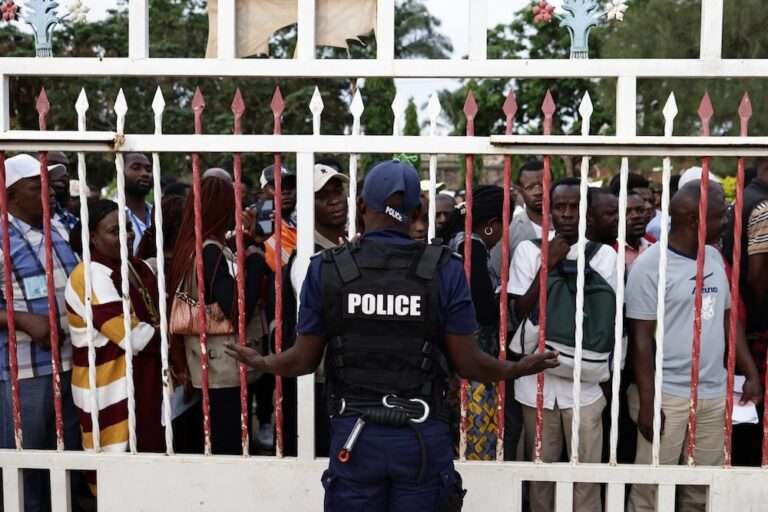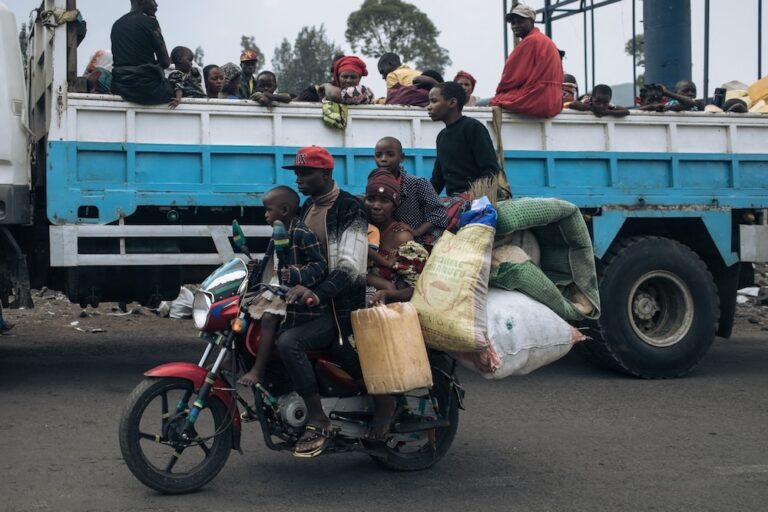(JED/IFEX) – In a ministerial order signed and brought into effect on 14 September 2000 in Kinshasa, Dominique Sakombi Inongo, the new minister of communications of the Democratic Republic of Congo (DRC), barred ten radio and television stations from broadcasting in the DRC. The affected stations are: Radio Elikya (owned by Kinshasa’s Catholic archdiocese), Radio […]
(JED/IFEX) – In a ministerial order signed and brought into effect on 14 September 2000 in Kinshasa, Dominique Sakombi Inongo, the new minister of communications of the Democratic Republic of Congo (DRC), barred ten radio and television stations from broadcasting in the DRC.
The affected stations are: Radio Elikya (owned by Kinshasa’s Catholic archdiocese), Radio Réveil FM, Radio Malebo Broadcast Channel (MBC), Radio RTKM, Radio Sentinelle (owned by the independent church Cité Bethel), Radio Kintuadi (owned by the Kimbanguiste Church), Antenne A Télévision, Canal Kin 1 and Canal Kin 2 (owned by Jean Bemba Saolona, a businessman and former economy minister in the Kabila government), as well as Télévision TKM.
The minister of communications justified this action by explaining that these media outlets do not respect “the final measures included in the schedule of conditions governing private radio and/or television stations.”
Prior to imposing this measure, Sakombi had given companies in the audio-visual sector forty-eight hours “to conform to Article 7 of Law no. 96-002 of 22 June 1996,” which outlines the regulations for the opening and running of private radio and television stations.
The minister of communications’ order threatens legal action against offenders who disregard the broadcasting ban.
The schedule of conditions which the minister of communications makes reference to is a document which is contested by private stakeholders in the DRC’s audio-visual sector. The document, which was drafted unilaterally by an information minister in Marshal Mobutu’s regime, was never countersigned by private radio and television station owners, as was supposed to occur. In July 1999, Didier Mumengi, Sakombi’s predecessor, had invoked the schedule of conditions to bar private radio and television stations in the DRC from rebroadcasting foreign media stations’ televised news programmes.
Among the audio-visual media targeted by the broadcast ban, six include news programmes as part of their programming. The others focus their programming on evangelisation and culture. The ban leaves Raga as the only private station which continues to broadcast news programmes in Kinshasa.


